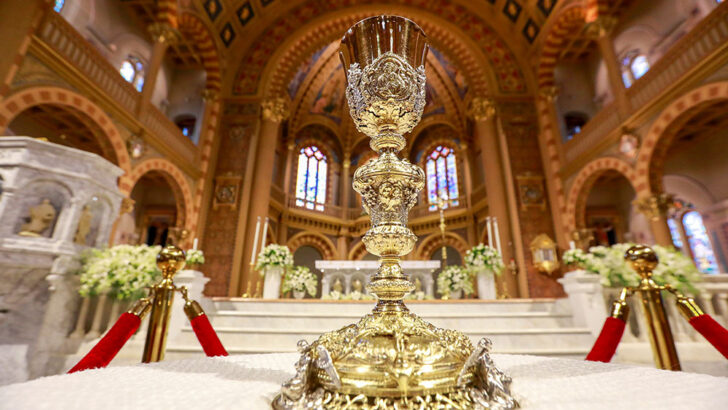Q: If our Orthodox brothers and sisters have a valid celebration of the Eucharist, can the same be said of the Polish National Catholic Church (PNCC)? Given your logic about the Orthodox churches a few weeks ago, it would seem to me that the PNCC also has apostolic succession, given that the founder of the church, Bishop Hodur, was ordained in the Catholic Church. I attended a PNCC liturgy, and it is nearly identical to our liturgy.
A: Yes, the Polish National Catholic Church does have a valid – but illicit – celebration of the Eucharist. The validity of the Eucharist means that the sacrament ‘works’, ‘illicit’ means that it is nevertheless celebrated contrary to the Church’s law.
For those who may be unfamiliar with this group, the Polish National Catholic Church was founded in the late 1800s in Scranton, Pennsylvania, by Polish immigrants who were dissatisfied with their experience of the Catholic Church in the states for a number of reasons, including the lack of Polish clergy and concerns about parish property ownership.
This group, led by Fr Franciszek Hodur, who had served as a priest in their parish, broke away from the established Catholic hierarchy. Fr Hodur eventually sought and received ordination as a bishop from another illicitly ordained bishop from a so-called ‘Old Catholic’ group. (‘Old Catholics’ separated themselves from the Church following the first Vatican ecumenical council.)
The Old Catholics did have bishops who were ordained via apostolic succession, meaning that the bishops were ordained by other bishops who were ordained in an unbroken chain going back to the time of the Twelve Apostles, who were given their sacramental authority by Jesus himself.
Thus, Bishop Hodur would have also been validly ordained a bishop, and was in turn able to validly ordain other men as priests. These priests therefore could validly consecrate the bread and wine at Mass, turning it into the body and blood of Christ.
However, while the validity of the Eucharist is obviously an important consideration, this is not the only factor we should take into account when discerning whether to be involved with a particular group or to attend Mass at one of their chapels.
In our lives as Catholics, we are not only obligated and privileged to partake in the Eucharist, but we are also called to maintain communion with the body of Christ, which is the Church, which is united visibly under the teaching authority of the Holy Father in Rome.
The bishops and clergy of the Polish National Catholic Church and other similar groups – and also, depending on the particular circumstances of their involvement and their level of understanding and intention, those lay Catholics who consider themselves members of such groups – are guilty of the canonical crime of schism, which Canon 751 of the Code of Canon Law defines as: “the withdrawal of submission to the Supreme Pontiff or from communion with the members of the Church subject to him”.
Schism is such a serious sin that in our current canon law any bishop who ordains another bishop without a mandate (i.e., a direct commissioning) from the Holy Father is automatically excommunicated, along with the new bishop he just ordained. This excommunication can only be lifted by the authority of the Pope himself (see Canon 1387).
It’s also good to keep in mind that just because a group has a valid Eucharist, it doesn’t follow that their priests can celebrate all the sacraments validly. For example, apart from a scenario involving immediate danger of death, with a few exceptions even a validly ordained priest needs a faculty from the legitimate bishop of the local diocese to absolve sins validly in the sacrament of penance (see Canon 966, Paragraph 1).
Since the Polish National Catholic Church has separated themselves from the ‘mainstream’ Catholic diocesan structure, their priests would not normally be granted this faculty by the proper authority.
Jenna Marie Cooper, who holds a licentiate in canon law, is a consecrated virgin and a canonist whose column appears weekly at OSV News. Send your questions to CatholicQA@osv.com.



